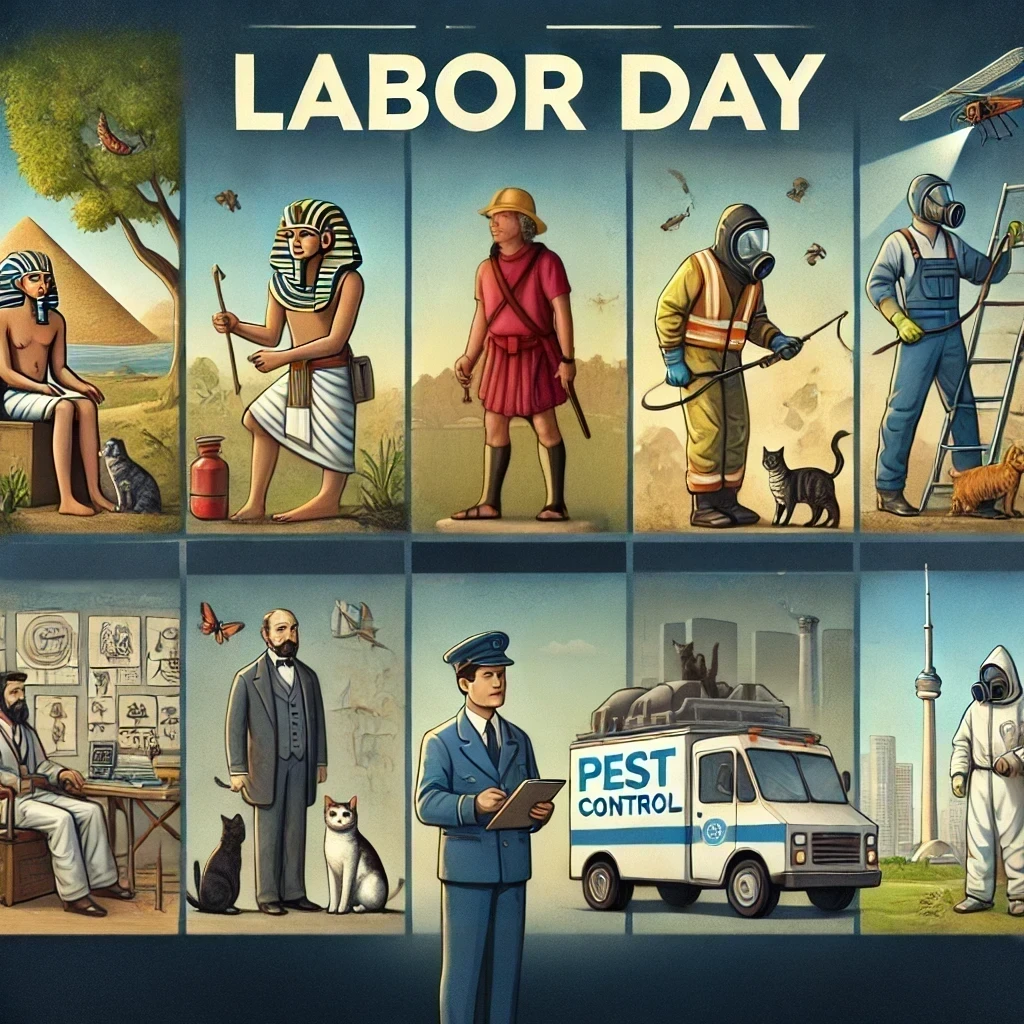
In commemoration of Labor Day, it is important to recognize the evolution of various professions, including pest controllers. This article explores the origins of this profession and how it has developed over time.
The Early Days of Pest Control
Antiquity and the Middle Ages
Pest control has ancient roots, as pests have been a nuisance to humanity since time immemorial. In ancient times, pest control methods were rudimentary and relied on basic agricultural and domestic practices. For example, the ancient Egyptians and Chinese used plants and herbs to repel insects and rodents.
During the Middle Ages, the lack of scientific knowledge about pests and the diseases they transmitted meant that pest control remained quite primitive. Methods included using cats to control mouse and rat populations, and it was believed that certain rituals and superstitions could keep pests at bay.
The Emergence of More Scientific Methods
16th and 17th Centuries
During the Renaissance, a more scientific approach to pest control began to emerge. The discovery of new insect species and advances in understanding their biology and behavior led to the development of more effective methods. During this time, chemicals such as sulfur and mercury were used to combat pests.
19th Century
The 19th century saw increased industrialization and urbanization, exacerbating pest problems in cities. The proliferation of pests in urban areas led to the need for more systematic and organized control methods. It was during this period that the first pest control companies began to appear, offering specialized services to treat infestations of rats, cockroaches, and other insects.
Pest Control as a Profession
20th Century
The 20th century marked the establishment of pest control as a formal profession. In the United States, the pest control industry professionalized with the formation of associations and the implementation of regulations. The National Pest Management Association (NPMA) was founded in 1933 to support industry professionals and establish standards of practice.
The development of new insecticides and rodenticides, along with an understanding of public health principles, transformed pest control. Education and training became essential components for those entering the profession, ensuring that technicians were well-informed about the most effective and safe methods.
Today
Today, pest control is a global industry with thousands of professionals working to keep homes, businesses, and communities pest-free. Modern pest controllers use a combination of chemical, biological, and physical methods, applying Integrated Pest Management (IPM) principles to minimize environmental impact and protect public health.
The evolution of pest controllers from humble beginnings to becoming a specialized and essential profession reflects the importance of adaptation and innovation in the workplace. On Labor Day, we celebrate all pest control professionals who work tirelessly to ensure our environments are safe and healthy.
For more information on pest control and how Eco Fauna Pest Control can help you, do not hesitate to contact us. We are here to offer you effective and safe solutions.
